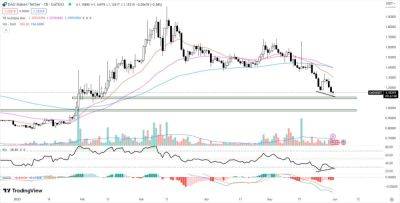Nigerian national blockchain policy gets government approval
The government of Nigeria — one of the world’s most curious nations about cryptocurrencies like Bitcoin (BTC) — has approved a national blockchain policy during its meeting on May 3, 2023. The approval was in response to a memo presented by Isa Ali Ibrahim, the Minister of Communications and Digital Economy.
In the announcement, The Federal Ministry of Communications and Digital Economy (FMCDE) cited a report from PricewaterhouseCoopers (PwC) predicting the widespread adoption of blockchain technology across various industries could potentially contribute $1.76 trillion to the global gross domestic product by 2030, representing 1.4% of the world’s GDP.
The FMCDE developed the national blockchain policy through stakeholder consultations in both the public and private sectors. The policy was developed on behalf of the federal government of Nigeria, in line with the seventh pillar of the national digital economy policy and strategy, which focuses on digital society and emerging technologies.
A draft of the blockchain adoption strategy, released in October 2020, stated that blockchain and decentralized ledger technology would “facilitate the development of the Nigerian digital economy.”
The policy aims to establish a blockchain-based economy that facilitates secure transactions, data sharing and value exchange among individuals, businesses and the government. The implementation of the policy is expected to have a favorable impact on the public and private sectors in Nigeria.
The National Information Technology Development Agency (NITDA) will be responsible for coordinating the policy initiatives under the supervision of the FMCDE. Additionally, a multisectoral steering committee has been established to oversee policy
Read more on cointelegraph.com
















